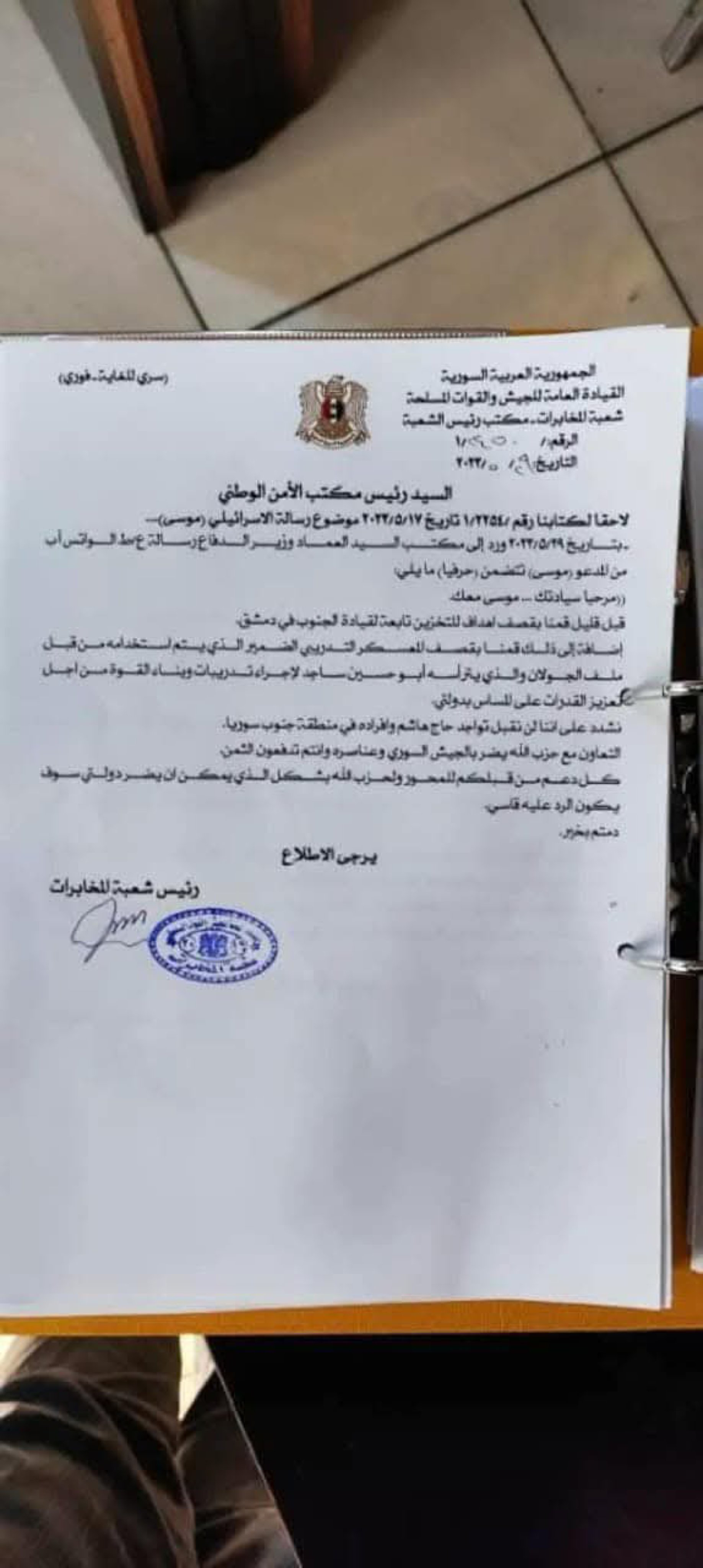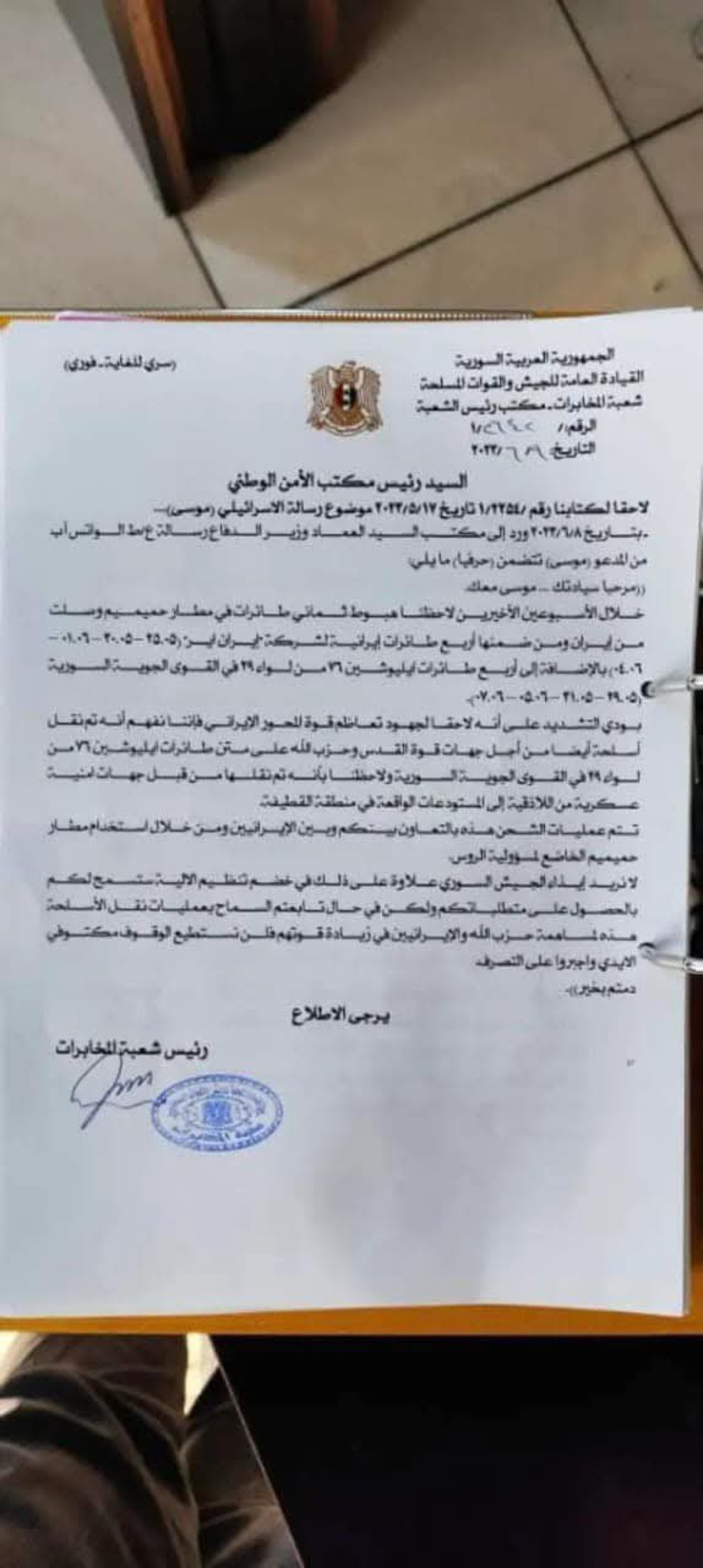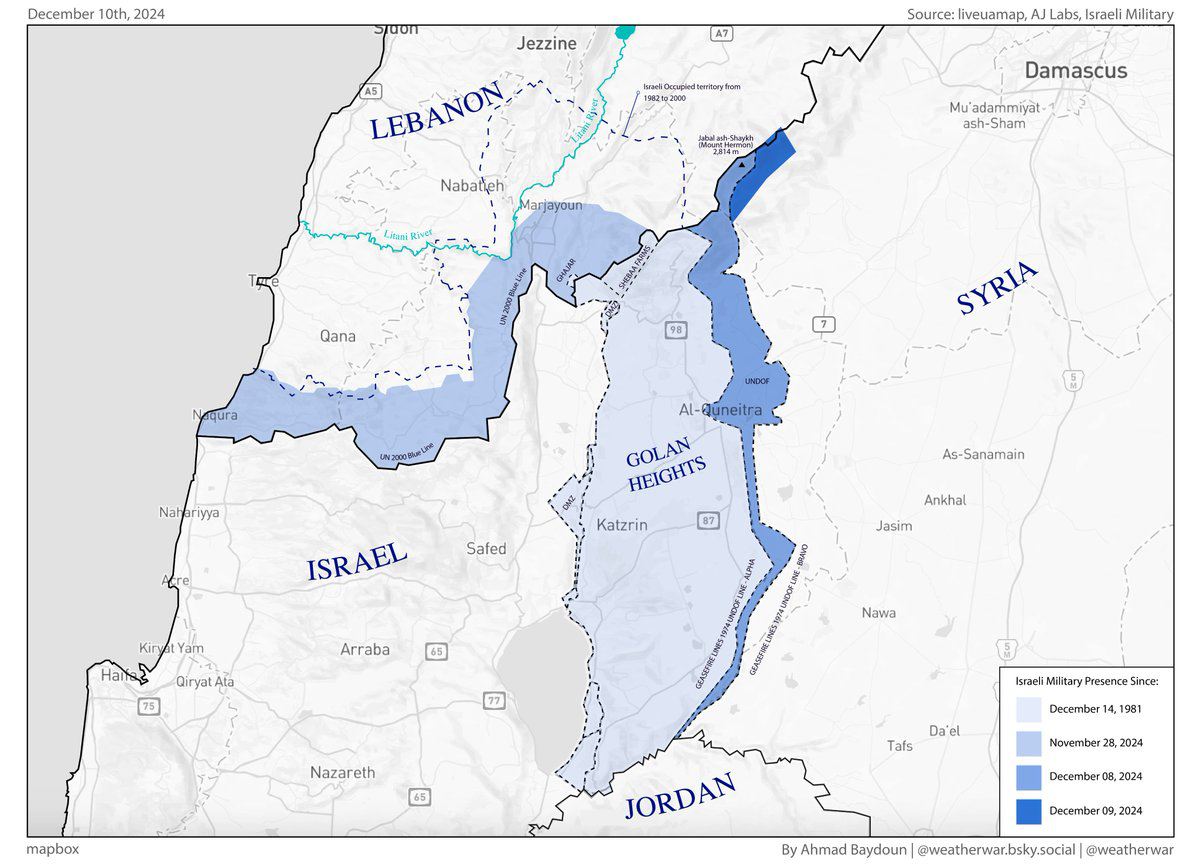[This is an ongoing post featuring analysis on the most recent developments in Syria after the fall of Bashar Asad. For more, listen to Bassam Haddad’s extended interview on Syria at The Dig Podcast with Daniel Denvir here. Follow Bassam Haddad on Twitter/X @4bassam.]
December 14, 2024 | Knowledge Production on Syria
On Knowledge Production on Syria: beyond the profound relief Syrians feel after the dictator ran away without a word, we found ourselves, and will keep finding ourselves for some time to come, reconstructing events and understandings of what transpired before and since November 27. But we keep falling into the fallacy of making discoveries fit our narratives. This is at some level unavoidable but can be mitigated if we can keep a few precursors in mind, especially during the first two weeks after November 27.
First, let us be clear: what we do not known about yet regarding the background to the HTS mobilization (beyond Turkish involvement) and the cowardly fleeing of Bashar is as important or even more important than what we have witnessed so far in Syria. We do not know exactly who (else) knew what and when and what trade-offs/understandings were forged/signaled. Only reports that have yet to be confirmed. We are beginning to learn about deals and trade-offs between the United States and Turkey. But not sufficiently.
Second, Syria today is not Syria of 2010; neither is the region. The momentous consequences of the Arab Uprisings and the toll they have placed on states and societies, Syria being in the forefront of such cases (weakened, embattled, divided, not sovereign), has changed internal equations. Israel’s Genocide in Gaza and its operations against the states/actors that have resisted it has weakened them, even if temporarily. Conservative Counter-Revolution proved effective nearly everywhere, unfortunately.
Third, if one is not living or have lived in Syria for a considerable amount of time, there is a good chance that one’s perspective on the severity of the situation there, not least after 2011, is determined more by one’s political predispositions than what is happening among and to Syrians at this moment. The brutality of the regime when applied (not just Hama/'82) is not the kind of thing one can just categorize under “authoritarianism.” This was much closer to Saddam’s Iraq than Mubarak’s Egypt in that regard.
Fourth, analysis about and developments at the geopolitics/regional politics too has been for the most part severed from what Syrians desire, demand, and deserve. All political actors in the region and beyond are guilty of ignoring Syrians wholesale to varying degrees, before, during, and after both the uprising and the recent collapse of the Syrian regime, not least the regime itself. To complicate matters, there is not one monolithic Syria. Not being at least acquainted with Syria’s provinces as well as the metropolitan-countryside divide(s) more broadly places thick blinders on our lenses. None of this means we cannot discuss geopolitics—we just cannot divorce that from the people concerned to suit our politics. And we also can't pretend that Syria exists in a regional/global vacuum.
Finally, those of us who have been writing consistently on Syria since the 90s (or before), can easily notice a schism among most (not all) writers: There are those who know Syria well before the uprising in 2011, but stopped writing as much or at all after, perhaps because they stopped following as closely, and sometimes for good reason; and there are those woke up to the reality of Syria in 2011, and actually followed developments closely and intently, but have somehow committed what we can call “An Epistemological October 7" where October 7th is assumed by supporters of Israel to be the beginning of time.
Many observers of Syria where divorced from the dicey local and regional context that predated the Syrian uprising, finding themselves pegged on fast-shifting events (alliances, disbanding, re-formation, etc.) more than a solid grounding based on patterns that more or less shape what we are observing.
By the same token, some still think what they researched in 2009 is sufficient for them to understand embattled and disfigured Syria today (Both state and society). We all have to retool, research, and fill blind spots, not least given the blackout on media imposed primarily by the regime during the uprising, but also to a lesser extent by others.
Keeping these caveats in mind gives our writing a longer shelf-life (note how the many authors on Syria from 2011-2016 have ceased to write on Syria today; they only opine or do hot-takes). Though the truth is we are probably all guilty of not taking the above into consideration at one time or another, including myself. I have tried from the first moment I started writing on Syria in the late 1990s to stick to the principles of analysis and social justice that I hold dear. Still, I have faltered as well. Trying to be more mindful in my current manuscript on Syria. Happy writing and Merry opining.
December 10, 2024 | Post-Collapse and Israel
Notes on the "Days After," with focus on Israel’s destruction of Syria’s defense capabilities and its implications: There is no mincing of words regarding the (realistically temporary) relief that pervaded Syria for the past couple of days. But as we discover what we expected regarding the infinitely atrocious/inhumane prisons of the regime, the effective unprecedented defanging and destruction of the Syrian state’s defense and intelligence capabilities by Israel as of today will have reverberations for decades to come. This is the Janus-faced context of the Ba`thist regime collapse that will become more evident by the day, if not hour, starting, well, yesterday.
Israel quickly mobilized to occupy Syrian land in the south of the country as a “permanent” "sterile defense zone" according to PM Netanyahu, with continuing advances that occupied rural towns in Syria, less than 15-18 Km south of Damascus. Further, in the absence of any deterrence and potentially under international cover Israel arguably launched the largest and most intense air campaign ever against an Arab state in the past couple of days, with 300+ air raids that destroyed 250+ military targets (bases and installations) according to Israeli sources, also confirmed widely. Israel also destroyed Syria’s entire Naval fleet and (nearly) all military airports and jet-fighters.
a. Keep watching the news regarding what is happening right now as far as new agreements between Israel and Egypt, and shortly between Israel and Turkey. This is likely to be followed by similar pacts and coordination more broadly with monarchies in the region and with the new US. Administration in January 2025, as Israel proceeds in its attempt to suffocate the last remaining state in the Middle East that is not subservient to it and to the United States—Iran.
b. Why is Israel hitting Syrian military targets with more brutal force than ever now, as opposed to prior: Israel never wanted the Syrian regime to be too weak. Israel wanted the Syrian regime to be strong enough to keep order and prevent a Hizballah-like insurgency from emerging in Syria; but not strong enough for the regime to pose a threat to Israel. Now that this formula is defunct with the collapse of the regime, and the weakening of its allies (see below) it is not taking any chances, and has a window of opportunity to strike with the usual impunity, thanks to the ever-solid “Western Values.” Additionally, newly emerging official/secret documents today show an understanding between Russia and Syria regarding military buildup by Iran in Syria, etc., is now dead (will link below, but further confirmation of authenticity desirable).



c. But also, Israel is undeterred now: Iran is timid and muted, even in its tit for tat with Israel. It still owes Israel a response. It is sitting back for strategic reasons that will become evident sometime in the near future, related to its nuclear capacity, presumably, but also to maintaining internal balance/stability. Hizballah has been weakened and disoriented. And though it is regrouping and reconstituting its lines of communication and command and control, it is overstretched in more than one way and will not engage Israel in Syria. Russia (oh Russia), is busy in its war with Ukraine, and its support for the Syrian regime has always been strategic, not organic. Russia will work with anyone, just like other states, but perhaps now more than ever, to preserve some of its ambitions. It will play along, and was never hostile to Israel.
d. Finally, we are living the counterfactual of the previous regime’s role in the resistance axis comes to remind us that it is not necessarily what the previous Syrian regime had done directly (it actually comforted Israel for decades regarding its northern “border”): after 1982 it ceased to be an active agent of potential resistance against Israel and became an agent that enables resistance via Hizballah. The 2006 war would have been severely altered in favor of Israel had it not been for the lifeline Syria offered Hizballah. The strategic and geographic depth, and remnants of ideological fortitude, was all that Syria needed to maintain in the past few decades.
This is now gone, with little to no indication if it will be revived in any actionable shape or form, beyond discursive proclamations by any succeeding government/leadership in Syria. The successive destruction of (inconsistently) threatening or just unfriendly Arab states to the United States (and Israel) during the past quarter century have been decimated, defanged, or pushed into debilitating civil wars (and not always because of intervention. Regional countries have ills too): Yemen, Libya, Somalia, Sudan, Lebanon, Syria, Palestine, Iraq are without much teeth, or none at all. Is this good for the people of the region? Let us wait and see what the valiant remaining states under Egyptian, Jordanian, Saudi, Qatari, UAE, and Moroccan and other leaderships will do to protect their own, to protect Palestinians/Palestine, to deter Israel’s expansion, to redistribute wealth, and to enhance self-determination. Eat healthy and stay fit to observe the medium-term results.
December 8, 2024 | Syria Angles: Political Economy of Pain
Quick Notes on Syria angles: What explains the stark polar reactions we are observing everywhere in the wake of the Syrian regime’s collapse? It is as though people are watching different realities, or approaching reality from singular angles. I’ll try to unpack here though I treated this phenomenon extensively elsewhere 12 years prior, and since. [warning: this is not fun reading]
December 7, 2024 | Blame Asad
Many, notably among supporters of the resistance axis, are lamenting that the timing of this surge/advance benefits Israel as it pursues its Genocide uninterrupted, and therefore could have been orchestrated, or signaled, by the US, etc., with the power of initiative by Turkey, without which none of this could have been possible, leading the way for its own purposes.
While all this might be true to some extent — smart and demonstrably effective, isn't it? — this functional thinking which should have been anticipated precisely to preserve the axis, elides that all this has been made so easily possible by the Syrian regime's continued repression, corruption, and de-development to preserve itself (starting decades before the uprising), not the axis, or the majority of the Syrian people. This, of course, notwithstanding the criminal US sanctions and the horrible regional and international actors that intervened in Syria during the past (almost) 14 years.
If you and I can recognize that this timing is cynical and opportune for the imperialists and colonizers and their Arab minions, as well as Turkey (sp?), surely the Syrian regime should have known/anticipated. Its hubris, tyranny, and deep corruption continued/continues to prevent it from lifting a finger, or engage in the least of compromises on near-absolute power, to begin crafting a Syria for (let's say) most Syrians.
Especially after the calamity it itself is primarily responsible for way, way, way before JAN+, ISIS, US, Turkey, KSA, Qatar, Totalitarian fighters, entered Syria in droves in 2011 and after, it had an opportunity after 2018 when it was completely embattled, but still in some sort of (semblance of) "control" of most of Syria, to forge a deal of sorts to serve most Syrians. Instead, it neither did that, nor rebuilt state institutions (including the army), nor called for the repatriation of Syrian to rebuild anything. It just sat there. For a long, long time. It also sat there watching the Israeli barbarians and the American criminals administer Genocide in Gaza. It sat there like its Arab state equivalents, for the most part.
If anyone is upset about the timing of this development and its impact on further undermining resistance to imperialism because it benefits the racist genocidal state of Israel and the repulsive hypocritical western states, you have no one to blame but the always brutal and self-serving Syrian regime itself. As Scarface (Al Pacino) tells the assassin who almost blew up the target’s car with his kids in it, after having shot him in the face to prevent him from clicking the button ….”Look at you now.” There are no angels, only bigger and smaller culprits, each administering their own repression, tailored to their size and capacity. Better be smarter, and better, than the bigger ones to preserve a semblance of broader justice. Or even yourself.
